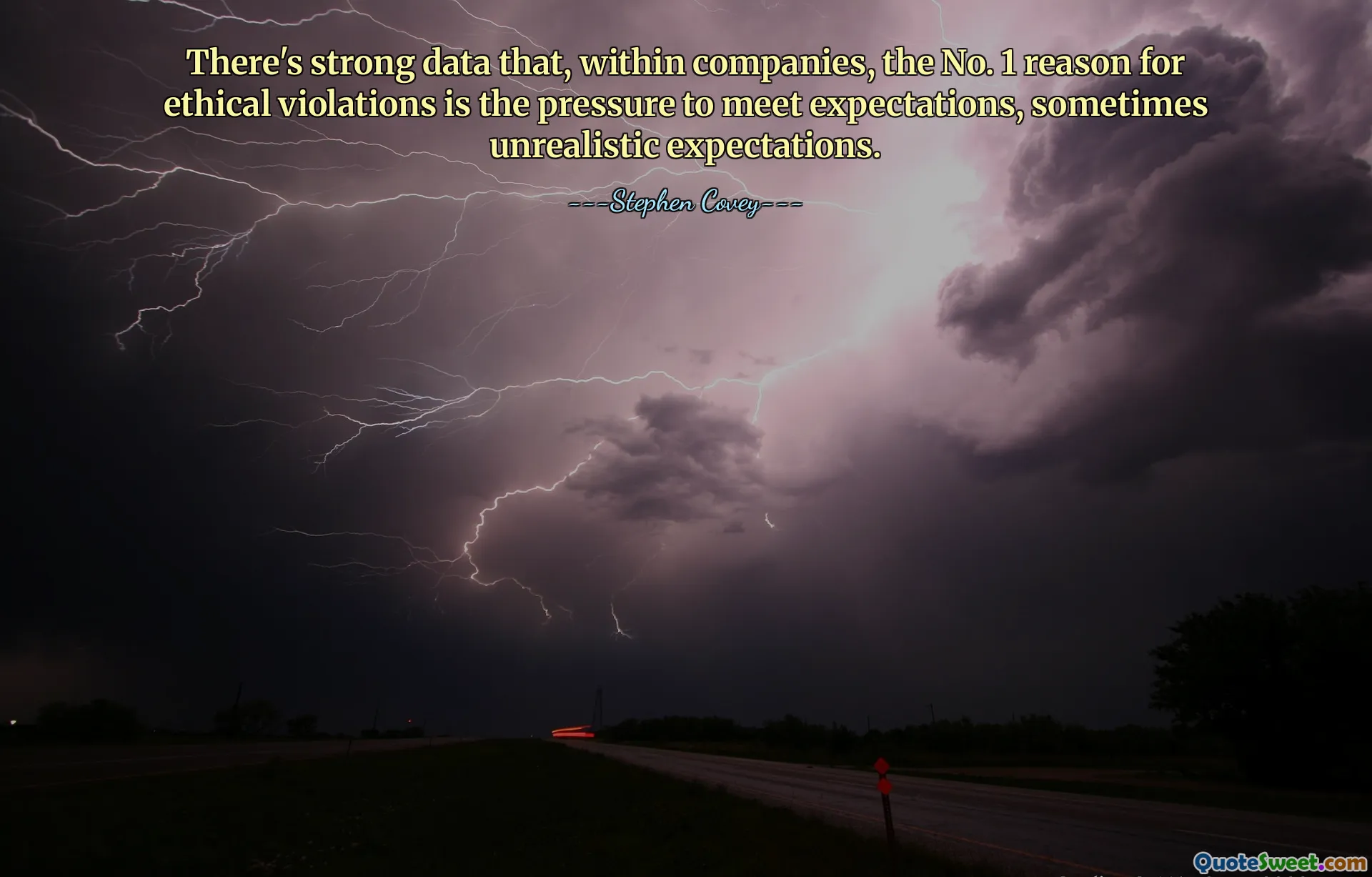
There's strong data that, within companies, the No. 1 reason for ethical violations is the pressure to meet expectations, sometimes unrealistic expectations.
The quote highlights a deeply ingrained issue within many organizational cultures — the undue pressure placed on employees to meet often unrealistic expectations. This environment can cultivate a sense of moral conflict, where individuals may feel compelled to compromise their ethical standards to fulfill demands from supervisors or meet targets that seem overstretched. Such pressures can lead to behaviors that jeopardize organizational integrity, including falsification, cut corners, or hiding mistakes.
This scenario illuminates how corporate environments sometimes prioritize results over process, inadvertently encouraging unethical conduct as a means of survival or success. Employees may rationalize their actions by believing that the pressure is unavoidable and that bending rules is justified as a temporary or necessary response. Moreover, the normalization of such pressures can create a culture where ethical breaches are overlooked or subtly tolerated, further entrenching the problem.
Addressing this issue requires a concerted effort from leadership to establish realistic, clear expectations and foster an environment where ethical behavior is rewarded and supported. Cultivating open communication channels enables employees to express concerns and seek guidance without fear of retaliation. Additionally, implementing systems to monitor workloads and expectations can mitigate undue pressure, fostering a culture of integrity and sustainability.
Ultimately, understanding the root causes of ethical violations within organizations helps in crafting policies that promote ethical decision-making. Recognizing that unrealistic expectations often drive unethical actions prompts a reassessment of organizational goals and how they are communicated. Creating a workspace where ethical standards align with company objectives not only enhances reputation but also promotes long-term success and employee well-being.











